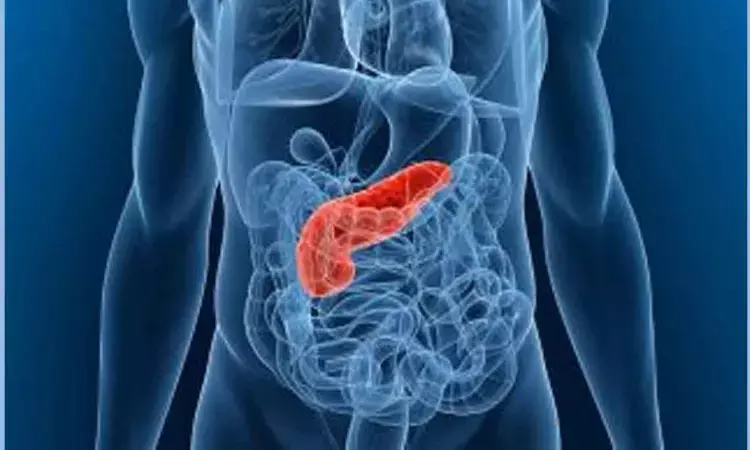- Home
- Medical news & Guidelines
- Anesthesiology
- Cardiology and CTVS
- Critical Care
- Dentistry
- Dermatology
- Diabetes and Endocrinology
- ENT
- Gastroenterology
- Medicine
- Nephrology
- Neurology
- Obstretics-Gynaecology
- Oncology
- Ophthalmology
- Orthopaedics
- Pediatrics-Neonatology
- Psychiatry
- Pulmonology
- Radiology
- Surgery
- Urology
- Laboratory Medicine
- Diet
- Nursing
- Paramedical
- Physiotherapy
- Health news
- Fact Check
- Bone Health Fact Check
- Brain Health Fact Check
- Cancer Related Fact Check
- Child Care Fact Check
- Dental and oral health fact check
- Diabetes and metabolic health fact check
- Diet and Nutrition Fact Check
- Eye and ENT Care Fact Check
- Fitness fact check
- Gut health fact check
- Heart health fact check
- Kidney health fact check
- Medical education fact check
- Men's health fact check
- Respiratory fact check
- Skin and hair care fact check
- Vaccine and Immunization fact check
- Women's health fact check
- AYUSH
- State News
- Andaman and Nicobar Islands
- Andhra Pradesh
- Arunachal Pradesh
- Assam
- Bihar
- Chandigarh
- Chattisgarh
- Dadra and Nagar Haveli
- Daman and Diu
- Delhi
- Goa
- Gujarat
- Haryana
- Himachal Pradesh
- Jammu & Kashmir
- Jharkhand
- Karnataka
- Kerala
- Ladakh
- Lakshadweep
- Madhya Pradesh
- Maharashtra
- Manipur
- Meghalaya
- Mizoram
- Nagaland
- Odisha
- Puducherry
- Punjab
- Rajasthan
- Sikkim
- Tamil Nadu
- Telangana
- Tripura
- Uttar Pradesh
- Uttrakhand
- West Bengal
- Medical Education
- Industry
Peri-operative glucocorticosteroids decrease complication risk after major pancreatic resection

There is increasing evidence that peri-operative glucocorticosteroid can ameliorate the systemic response following major surgery.
Perioperative glucocorticoids have the potential to increase the risk of tumor metastasis. Gluococorticosteroids are commonly used in anesthetic practice for prophylaxis against postoperative nausea and vomiting, and they can also be used to prevent allergies before transfusion. Despite their widespread use, few clinical studies have evaluated the effects of perioperative glucocorticosteroids on oncological outcomes, and the results obtained are conflicting
A systematic review recently conducted at the Department of Surgery, The Queen Elizabeth Hospital, South Africa revealed that there could be a possible positive association between glucocorticosteroid and outcomes following major pancreatic resection.
The research is published in the Hepato Pancreato Biliary Journal.
Preliminary evidence suggests perioperative usage may decrease postoperative complications. These positive associations have been observed in a range of different surgeries from intra-abdominal procedures, thoracic, cardiac and orthopaedic surgery.
However, Li Lian Kuan and colleagues aimed to investigate the impact of peri-operative glucocorticosteroid on major pancreatic resection. According to the literature, this is the first systematic review conducted to investigate the significance of peri-operative glucocorticosteroid in patients undergoing pancreatic resections.
The authors carried out a systematic review of a total of five studies. The studies were then analysed. Out of the five papers included, three were randomised control trials and two retrospective cohort studies.
The total patient population was 536. The glucocorticosteroids used were intravenous hydrocortisone or dexamethasone. The study revealed that four studies reported a statistically significant lower morbidity in the peri-operative glucocorticosteroid group. The number needed to treat to prevent one major complication with hydrocortisone was four patients. Furthermore, two studies demonstrated dexamethasone was associated with significantly improved median overall survival.
As a result, the authors concluded that this review shows a possible positive association between glucocorticosteroid and outcomes following major pancreatic resection. However, more randomised control trials are required to confirm if this is a true effect, they further inferred.
For further reference, log in to:
https://doi.org/10.1016/j.hpb.2021.07.001
Dr. Nandita Mohan is a practicing pediatric dentist with more than 5 years of clinical work experience. Along with this, she is equally interested in keeping herself up to date about the latest developments in the field of medicine and dentistry which is the driving force for her to be in association with Medical Dialogues. She also has her name attached with many publications; both national and international. She has pursued her BDS from Rajiv Gandhi University of Health Sciences, Bangalore and later went to enter her dream specialty (MDS) in the Department of Pedodontics and Preventive Dentistry from Pt. B.D. Sharma University of Health Sciences. Through all the years of experience, her core interest in learning something new has never stopped. She can be contacted at editorial@medicaldialogues.in. Contact no. 011-43720751
Dr Kamal Kant Kohli-MBBS, DTCD- a chest specialist with more than 30 years of practice and a flair for writing clinical articles, Dr Kamal Kant Kohli joined Medical Dialogues as a Chief Editor of Medical News. Besides writing articles, as an editor, he proofreads and verifies all the medical content published on Medical Dialogues including those coming from journals, studies,medical conferences,guidelines etc. Email: drkohli@medicaldialogues.in. Contact no. 011-43720751


